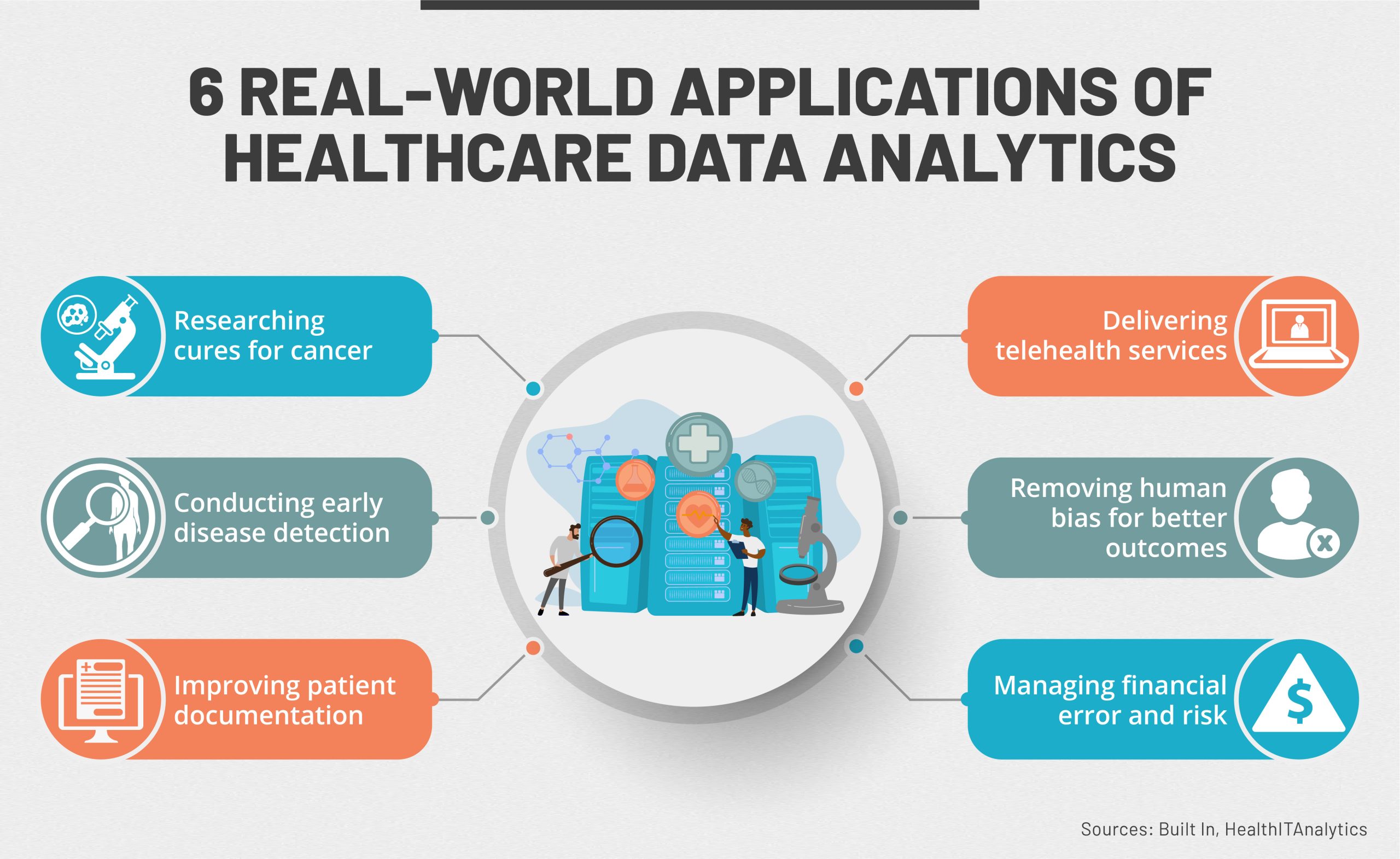The Benefits of Data Analytics in Healthcare
Data analytics has revolutionized the healthcare industry, providing valuable insights and improving patient care. In this article, we will explore the numerous benefits of data analytics in healthcare and how it can help healthcare providers make informed decisions.
Enhanced Patient Care
Data analytics plays a crucial role in enhancing patient care. By analyzing large volumes of healthcare data, healthcare providers can identify patterns, trends, and potential risks. This information enables them to develop personalized treatment plans and interventions, leading to improved patient outcomes.
Early Disease Detection
Data analytics allows healthcare providers to detect diseases at an early stage by identifying subtle changes in patient data. By analyzing patient records, lab results, and other relevant data, healthcare professionals can identify potential health issues before they become severe. Early detection leads to timely interventions, increasing the chances of successful treatment.
Improved Treatment and Medication
With the help of data analytics, healthcare providers can analyze the effectiveness of different treatment options and medications. By studying patient outcomes and treatment responses, healthcare professionals can identify the most effective approaches for specific conditions. This knowledge helps in optimizing treatment plans and improving patient care.
Efficient Resource Allocation
Data analytics enables healthcare providers to allocate resources efficiently, ensuring optimal utilization. By analyzing data on patient flow, resource utilization, and operational efficiency, healthcare organizations can identify areas of improvement and make informed decisions. This leads to better resource allocation, reduced costs, and improved overall efficiency.
Optimized Staffing and Scheduling
Data analytics helps healthcare organizations optimize staffing and scheduling processes. By analyzing historical data on patient visits, healthcare providers can predict peak times and adjust staffing accordingly. This ensures that the right number of healthcare professionals is available to provide quality care, minimizing wait times and improving patient satisfaction.
Inventory Management
Data analytics also plays a vital role in inventory management. By analyzing data on medication usage, equipment utilization, and supply chain, healthcare organizations can optimize inventory levels. This prevents stockouts and reduces wastage, resulting in cost savings and improved patient care.
Enhanced Decision-Making
Data analytics empowers healthcare providers to make data-driven decisions, leading to better outcomes. By analyzing data from various sources, healthcare professionals can gain insights into patient populations, treatment effectiveness, and healthcare trends. This information helps in strategic planning, quality improvement initiatives, and policy development.
Identifying Population Health Trends
Data analytics allows healthcare organizations to identify population health trends and patterns. By analyzing data from multiple sources, such as electronic health records, social determinants of health, and environmental factors, healthcare providers can identify high-risk populations and develop targeted interventions. This proactive approach helps in preventing diseases and improving overall population health.
Quality Improvement Initiatives
Data analytics plays a crucial role in quality improvement initiatives. By analyzing data on healthcare outcomes, patient satisfaction, and adherence to best practices, healthcare organizations can identify areas for improvement. This enables them to implement evidence-based practices, reduce medical errors, and enhance patient safety.

Data analytics has become an indispensable tool in healthcare, offering numerous benefits to healthcare providers and patients alike. By leveraging the power of data analytics, healthcare organizations can enhance patient care, allocate resources efficiently, and make informed decisions. Embracing data analytics in healthcare is essential for improving outcomes, reducing costs, and ultimately transforming the healthcare industry.
Frequently Asked Questions
1. What are the benefits of data analytics in healthcare?
Data analytics in healthcare can provide insights and patterns from large amounts of data, leading to improved patient care, better resource allocation, early disease detection, and personalized treatment plans.
2. How can data analytics improve patient care?
Data analytics can help healthcare providers identify trends and patterns in patient data, leading to better diagnosis, treatment decisions, and monitoring of patient outcomes.
3. In what ways can data analytics help with resource allocation?
Data analytics can assist in optimizing resource allocation by identifying areas of high demand, predicting patient flow, and improving operational efficiency in healthcare facilities.
4. Can data analytics help in early disease detection?
Yes, data analytics can analyze patient data to identify early warning signs, risk factors, and patterns that can help in the early detection and prevention of diseases.
5. How can data analytics contribute to personalized treatment plans?
Data analytics can analyze patient data, including genetic information, to identify personalized treatment options, predict treatment outcomes, and support precision medicine approaches.
6. What are the advantages of using data analytics in healthcare research?
Data analytics can enable researchers to analyze large datasets quickly, discover new patterns, identify correlations, and generate evidence-based insights for medical research and clinical trials.
7. How does data analytics enhance patient safety?
Data analytics can help identify potential risks, medication errors, and adverse events by analyzing patient data, leading to improved patient safety protocols and proactive interventions.
8. Can data analytics improve healthcare operations?
Yes, data analytics can optimize healthcare operations by identifying inefficiencies, streamlining workflows, reducing costs, and improving overall organizational performance.
9. How can data analytics support population health management?
Data analytics can analyze population health data to identify health trends, risk factors, and patterns, enabling targeted interventions, preventive measures, and population health management strategies.
10. What role does data analytics play in healthcare decision-making?
Data analytics provides evidence-based insights, predictive models, and real-time data visualization, empowering healthcare professionals to make informed decisions, improve patient outcomes, and drive healthcare innovation.




